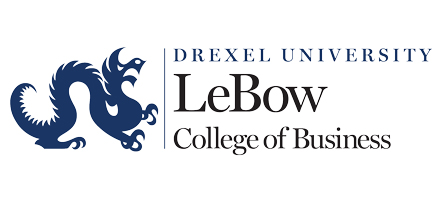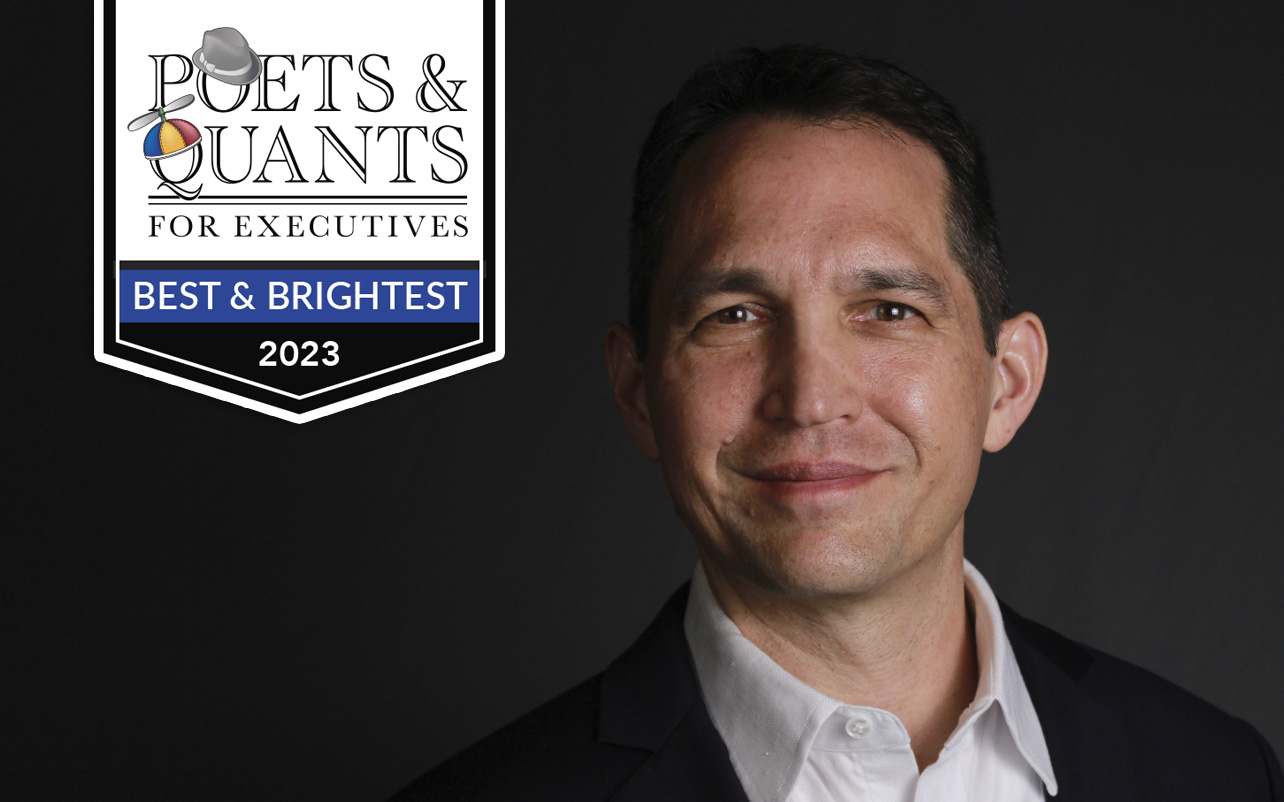Keoki Williams
University of Chicago, Booth School of Business
Age: 53
“I am someone who sincerely cares about improving the lives and health of others.”
Hometown: Ann Arbor, Michigan
Family Members: My wife, Lanette, and I were high school sweethearts. She has been tremendously supportive of me throughout my career while raising our family and building a career of her own. I couldn’t have a better partner in life. Our oldest son, Kai, is an electrical engineer/computer scientist; our daughter, Kiele, just graduated from college; and youngest son, Koa, is a rising senior in college.
Fun fact about yourself: My father is part native Hawaiian (hence my name), but I was born in Germany. My parents were living overseas at the time, as a result of my father being in the U.S. Air Force. After completing my medical residency in internal medicine, I decided that I also wanted to serve. I joined the U.S. Public Health Service as an officer in the commissioned corps. During my time in the USPHS, I was a member of the Epidemic Intelligence Service (EIS) at the U.S. Centers for Disease Control and Prevention (CDC). EIS Officers are the nation’s disease detectives, and are called upon when needed to investigate epidemics around the world.
Undergraduate School and Degree:
Kalamazoo College, Bachelor of Arts, double major in chemistry and biology
University of Michigan Medical School, Medical Doctor
University of Michigan School of Public Health, Master of Public Health in health policy and management
Where are you currently working? I am both a practicing physician and I head a research center, the Center for Individualized and Genomic Medicine Research (CIGMA), at Henry Ford Health System in Detroit, Michigan.
Extracurricular Activities, Community Work and Leadership Roles: For over a decade, I have volunteered at a clinic in downtown Detroit, which provides free healthcare to the poor and underserved.
Which academic or extracurricular achievement are you most proud of during business school? Inspired by our classes, such as Managerial Decision Making (Richard Thaler), Marketing Management (Sanjay Dhar and Pradeep Chintagunta), Managerial Accounting (Doug Skinner), and Operations Management (Baris Ata), my friend and brilliant classmate, Brian Davis, and I submitted two federal small business grants to facilitate chronic disease management and improve value-based healthcare. The grant deadlines fell within some of our hardest final exam weeks.
What achievement are you most proud of in your professional career? I was recently inducted into the American Society for Clinical Investigation (ASCI), one of the nation’s oldest honor societies for physicians.
Who was your favorite MBA professor? I had excellent professors for our challenging quantitative classes at Booth – Accounting (Haresh Sapra), Microeconomics (Lars Stole), Corporate Finance (Tony Marciano), Financial Strategy (Mark Zmijewski), and Investments (John Heaton). All of these professors were fantastic, and went out of their way to answer my many questions – even by Zoom when they were sick – that’s true dedication.
Why did you choose this school’s executive MBA program? The admissions team at Booth did a fantastic job of introducing me to the school, its faculty, and the alumni. As a result, I had a much better appreciation for Booth and the executive MBA program when compared to the other schools. The academic rigor of Booth appealed to me, especially knowing that the University of Chicago holds all of its MBA programs to the same high standards and requirements.
What is the biggest lesson you gained during your MBA and how did you apply it at work? Having a framework for negotiations has proven valuable both at work and outside of work. I now spend time preparing for a negotiation by writing out all of the components and individual perspectives.
Give us a story during your time as an executive MBA on how you were able to juggle work, family and education? Just recently, I had both a medical conference and MBA classes on the same weekend. Fortunately, they were both in Chicago. Classes for Booth’s executive MBA program are held at the Gleacher Center, which is located in the heart of Chicago’s commercial district, just a block from Michigan Avenue and the Magnificent Mile. Fortunately, the medical conference was just a few blocks away from the Gleacher Center, so I was running back and forth between classes and conference sessions. Over the past two years, there have been many times when work and school deadlines have overlapped. I try to give my family ample forewarning when these events are going to happen, so that we don’t schedule family excursions in those windows.
What advice would you give to a student looking to enter an executive MBA program?
Here are some of the items that prospective executive MBA program applicants should consider.
* Evaluate the strengths of the program(s) to which you are applying. Make sure that the attributes of the program align with your personal interests and goals.
* Speak with alumni who have similar backgrounds in terms of occupation or training or who pivoted into the type of job that you are interested in.
* Attend classes in-person or online with professors. Assess the quality and reputation of the faculty teaching in the executive MBA program.
* Evaluate the strength of the alumni network – are there well-placed alumni in the companies that you are interested in?
* If you are entrepreneurial, evaluate the resources available for entrepreneurs.
* Make sure that the school provides equal opportunities for EMBA students when compared to its other MBA programs.
* Make sure that the school holds the EMBA program to the same academic rigor and confers the same degree when compared to its other MBA programs.
* Make sure that you are prepared for the workload and that you can accommodate it given your work and family responsibilities. The workload will likely be greater than you are expecting.
What was your biggest regret in business school? My biggest sadness from business school will be missing my classmates after graduation. It is an extremely tight knit group – one of the closest that I have experienced in my academic career. I also regret not taking Guy Rolnik’s Storytelling class as a summer elective when I had the chance.
Which MBA classmate do you most admire? It is too hard to select just one person among so many amazing people. There are classmates who leave work, travel in from afar (some via a red-eye flight), complete multiple packed days of classes, and then fly back home to spend the remaining part of the weekend with their young families – I admire this dedication. Other classmates lead class discussions or are the mainstays for every academic group that they are in despite English being their 2nd or even 3rd language – I admire this boldness and acuity. Still others have had to overcome personal tragedies or major life challenges to be part of the class, or they are actively involved in bettering the lives of others through their humanitarian efforts – I admire this fortitude and generosity. Some classmates have made it their mission to bring our class together as a cohesive unit and are always planning social activities – I admire this connectedness. Lastly, other classmates have become close personal friends and have been wonderful teammates – I admire this support and camaraderie. Given the vast differences in these characteristics, it is impossible to select just one classmate, but I do owe them all a tremendous thanks for enriching my life with their presence.
What was the main reason you chose an executive MBA program over part-time or online alternatives? Part-time, online, and executive MBA programs all allow you to work simultaneously while obtaining an MBA degree. Of these, only the executive MBA program had the benefit of completing the degree within 2-years (the time span of a full-time MBA) and getting to meet and interact with classmates in-person.
What is your ultimate long-term professional goal? My ultimate long-term professional goal is to fix U.S. healthcare. More specifically, my plan involves developing technology to make the system work better for both patients and providers – removing hurdles that patients face when trying to achieve control of their conditions and alleviating the large administrative (paperwork) burden currently faced by providers. The hopeful result would be happier and healthier patients and providers.
What made Keoki Williams such an invaluable addition to the Class of 2023?
“As I read the characteristics Keoki admires most about his amazing classmates, I am struck by the fact that I would use these same words – and then a few more – to describe him.
Keoki’s dedication to his family, his classmates, his academics, and his profession is unwavering and relentless. Keoki has a remarkable ability to cut through the noise and focus on what really matters, to get to the core of the issue at hand. Keoki demonstrates courage of his own convictions. He is confident and perceptive, without any trace of arrogance. He is very smart – and very humble. Keoki does not shy away from taking a stand, but he does so while listening and carefully considering others’ viewpoints. Keoki is generous with his time and his knowledge. He is universally well-respected among a very diverse cohort of classmates.
If I were to take literary license with Keoki’s opening statement here “I am someone who sincerely cares about improving the lives and health of others,” I would rewrite it to highlight that Keoki actually does improve the lives and health of others. Earlier in his career, Keoki took the road less traveled and left the prestigious University of Michigan Health System for the Henry Ford Health System in Detroit, because he wanted to pursue a very specific tract of epidemiologic research in understudied populations. He has received eight separate independent investigators awards from the National Institutes of Health, the gold standard for scientific productivity. The first of these was awarded on its initial submission, a rarity in NIH grant funding. Keoki’s recent induction into the American Society for Clinical Investigation (ASCI), one of the nation’s oldest honor societies for physicians, is further testament to his medical prowess. And now, Keoki adds graduating with honors from Chicago Booth to his resume, cementing his ability to apply his medical research to improving patient care in the business world. We are fortunate and proud to have a Chicago Booth alumnus play a prominent role in fixing US healthcare.”
Julie Morton
Associate Dean, Executive MBA Program
DON’T MISS: THE BEST & BRIGHTEST EXECUTIVE MBAS OF 2023





